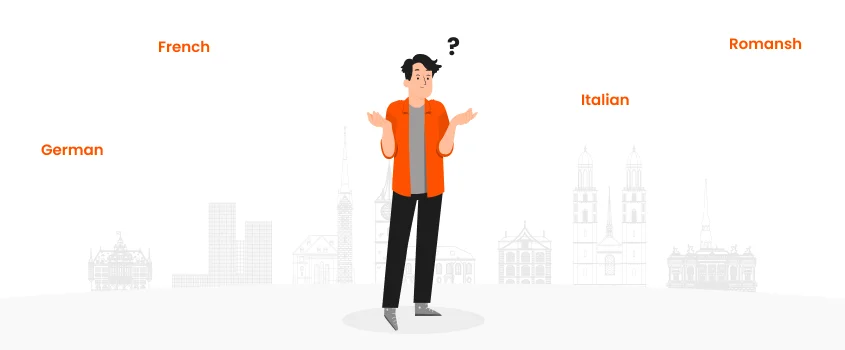2025 Offer Request a Quote Today and Grab a $50 Coupon for Free!
The Slovenian language is one of the ancient languages of Europe and is written in the Slavic language. It is native to over two million people and most amazingly it has fifty dialects. The distance of so many dialects make the translation into Slovenian language quite challenging. If you need to get anything translated into your desired version of the Slovenian language, it’s better to take professional Slovenian translation services, and that is what we are here for!
Let's discover more about this amazing language.
Slovenia is known as a secret language because it is native to only 2.1 million people in the world. The minority of the people who spoke Slovenia language are inhabitants of bordering countries of Austria, Hungary, Croatia, and Italy. At the beginning of the twentieth century, many Slovenian migrated to the USA and Ohio so Slovenian is also spoken in the USA and Ohio. Moreover after world war 2 many Slovenian left their country and went to Argentina so Slovenia language is also spoken in South America. Being the archaic language of Europe, a minority of Slovenian speakers resides in Australia, South Africa, Canada, and Serbia.
The oldest given Slovenian documents are The Freising Manuscripts. The exact date of these documents cannot be estimated but it is expected that they were written in the 9th century. It is the oldest document in Slavic languages. These oldest manuscripts are kept in Bavarian State Library in Munich. The manuscripts are there since 1803. They were exhibited in Slovenia only for one time in 2004.
Slovene is also known as a dual language which means it uses a grammatical number with singular and plural. It is one of the rare languages of the European Union that is dual. Dual is used to identify concepts, objects and two persons by the pronoun and noun.
It is very surprising to know that despite only 2.3 million native speakers, Slovene still has around 50 dialects which show it is a very diversified language. Slovene dialects are divided into seven groups according to seven regions that are Pannonian, Styrian, Rovte, Littoral, Lower Carniolan, Carinthian and lower Carniolan. These dialects are different from each other and it makes it very difficult for people from different parts of Slovene to understand it. The wide range of the Slovenian language is well depicted by the saying Vsaka vas ima svoj glas which means Every village has its voice.
Slovenia was previously occupied by many nations and kingdoms and got independence in 1991. To have a separate independent state was the dream of Slovenia. Many countries and kingdoms tried to destroy the Slovenian nation and language but the Slovenian language kept the whole nation united. With the help of Slovenian language, people raised their voice of freedom and finally became an independent state.
Slovene is the 12th language in the world in which the Bible is translated. The first sentence of the Bible is written in Freising manuscripts and the Bible was translated by Lutheran minister Jurij Dalmatian in Slovenian language. It took a long time in the translation of the Bible. It was completed in 1578 and was published late in 1583. Bible translation in Slovenian language has great linguistic importance and it has become a piece of inspiration for the Slovenian language for generations to come.
The modern Slovene alphabet consists of the Czech alphabet and contains 25 letters. This alphabet uses the Latin form of the alphabet which includes C, S, Z. They don't use the alphabet X and Y.
Interestingly, no humiliating and curse words are used in the Slovenian language. When Slovenian people want to curse anyone, they borrow cursing words from former Yugoslavian countries.
At the time of World War 2, Slovenia was occupied by Croatians, Hungarians, Italian, and Germans. Because of this occupation, Slovenia language was not allowed to be taught in schools. Besides school, it was also forbidden in several public places. If they found someone speaking Slovenian language, they used to beat them with logs and punish them to kneel on a pile of corn. During this time many Slovenian books were ruined leading to damage to Slovenian Culture and heritage.
Slovenian is a worth-learning ancient language. There are many different ways through which you can learn to speak it. If you are aspiring to visit Slovenia for personal or business reasons, Mars Translation can help.

The number of worldwide Internet users already exceeded 3 billion people in January 2015, according to Satista dot com. And
Read more
A marriage certificate is a legal document that joins two people who want to live with each other, for the
Read more
A death certificate is a very essential document issued by a doctor, which certifies that the person is deceased. This
Read more
Romania is officially known as the Republic of Romania. It is located at the junction of Central-Eastern and South-Eastern Europe.
Read more
Switzerland is a landlocked country with a very interesting history. The culture and languages spoken in Switzerland are highly influenced
Read more
Many people really do not know what divorce is exactly. Divorce is the legal process of separating couples who have
Read more
If you have planned to drive for the first time, you will have to start with a learner’s permit. There
Read more
Bill of exchange is a way to communicate with others for resolving issues legally. It is a systematic way of
Read more
Making a will gives you an opportunity to declare the names of one or more persons; you want to manage
Read more

